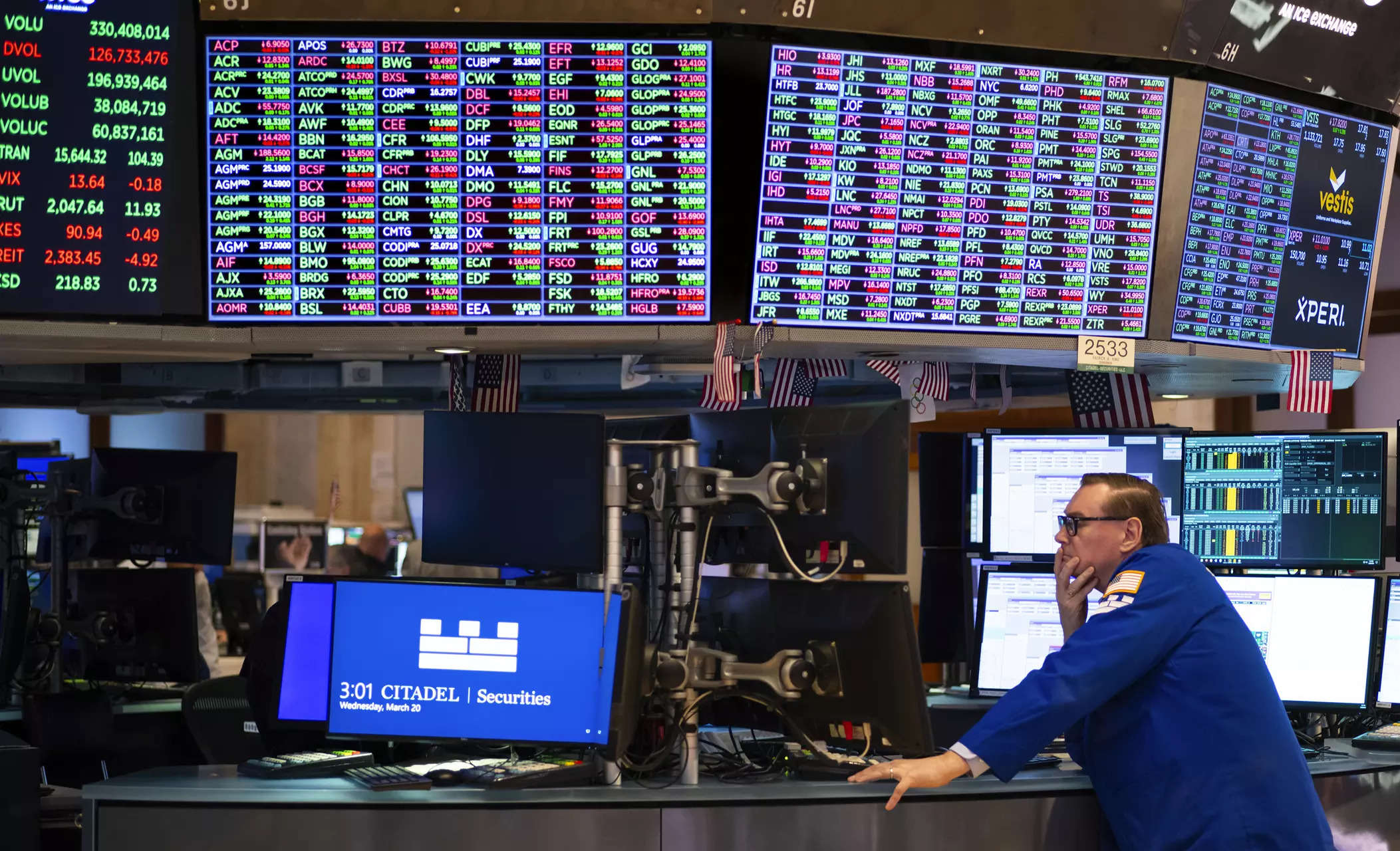Asian stocks muted, gold at new peak as markets weigh Fed cut timing
Gold rose to a fresh all-time peak after a mild reading for producer price inflation kept alive hopes for Fed easing this year, though U.S. Treasury yields stuck close to five-month highs in the wake of hotter-than-expected consumer price data mid-week that forced a paring back of rate cut bets.
Asian equities were in a subdued mood on Friday as investors pondered the path for interest rate cuts amid a murky U.S. inflation outlook.Gold rose to a fresh all-time peak after a mild reading for producer price inflation kept alive hopes for easing this year, though U.S. Treasury yields stuck close to five-month highs in the wake of hotter-than-expected consumer price data mid-week that forced a paring back of rate cut bets.
The dollar hung near a five-month high following a nearly 1% gain this week against a basket of major peers.
Crude oil continued to trade north of the $90 mark amid a flare-up in Middle East tensions.
Markets now expect fewer than two quarter point reductions to the Fed funds rate this year, below the three cuts Fed officials had pencilled in last month, after rushing to trim easing bets following Wednesday's CPI shock.
Fed officials said on Thursday there was no urgency to ease, with Boston Fed President Susan Collins saying the strength of the economy and uneven retreat in inflation argued against a near-term push to lower rates.
However, IG analyst Tony Sycamore remains bullish on the outlook for equities.
"Putting the pieces together at the end of a busy week, if U.S. economic growth remains resilient, inflation remains contained, and the sell-off in the bond market doesn't accelerate, the backdrop for U.S. equity markets remains supportive even without Fed rate cuts," he said.
Japan was the only real bright spot around the Asia Pacific on Friday, with the Nikkei 225 up 0.5%.
shares led the way, drawing inspiration from a rally in U.S. peers overnight. Gains for the index would have been even bigger but for the steep slide in shares of heavily weighted Fast Retailing, owner of the Uniqlo chain, following disappointing earnings.
Elsewhere, markets mostly suffered small losses. South Korea's slipped 0.39% and Singapore's Index was off 0.12%. Central banks in both countries opted to keep policy unchanged on Friday.
The worst losses were in Hong Kong, with the sliding 1.31% as property shares weighed. Mainland China's blue chips were flat.
MSCI's broadest index of Asia-Pacific shares outside Japan slipped 0.3%, but is still on course for a 0.52% rise for the week.
Long-term U.S. Treasury yields stood at 4.5641% in Asian trading, staying close to the overnight high of 4.5680%, a level last seen on Nov. 14.
The climb in yields supported the dollar as it pushed to a 34-year high of 153.32 yen on Thursday. It last changed hands at 153.105 yen, spurring fresh intervention warnings from Japan's finance minister.
The dollar index, which measures the currency against the yen, euro and four other peers, traded at 105.26, after reaching the highest since Nov. 14 at 105.53 overnight. It has jumped 0.95% this week.
The euro bought $1.07245 after dipping to a nearly two-month trough at $1.0699 on Thursday, when the European Central Bank signalled that rate cuts may come soon.
Gold climbed to a record $2,395.29, bringing its gains this week to 2.74%.
Crude oil prices rose after Iran vowed to retaliate for a suspected Israeli airstrike on its embassy in Syria.
Brent crude futures added 34 cents, or 0.38%, to $90.08 a barrel, while U.S. West Texas Intermediate crude futures gained 44 cents, or 0.51%, to $85.45.
Source: Stocks-Markets-Economic Times
